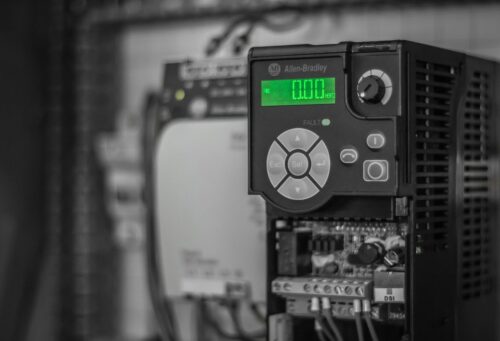
With the pace of technological innovation moving at a faster speed than any other time in history, many people are beginning to wonder just how deeply intertwined into both our societies and our lives technology will become.
Our recent advances in automation, the Internet of Things (IoT), wireless communications networks, and artificial intelligence and machine learning have enabled us to streamline many industrial and operational processes which, in turn, has enhanced the way in which we are able to both live and work.
Robotics has been around for many years and has recently been on the upsurge again thanks to some of the innovations mentioned above. With a huge archive of popular culture references to robots operating within certain roles in society, now that we are finally reaching a stage were we a technologically capable of doing this, how long might it take until we begin to see robots take on police work, for example?
The answer is not long at all, sort of.
In this article, we’ll take a look at how likely it is the robots will replace our human police forces and, if so, what kinds of roles would they take on? With companies and governments around the world investing in research and development, and even some real-world examples, we’ll see whether robots are capable of ever completely removing human beings from police work in the near future, so, let’s jump straight into it.
Minor Crimes & Mechanical Officers
Like the vast majority of other commercial, industrial, and public sectors, policing relies heavily on communication. From calls reporting crimes in progress to making a police presence known so as to deter criminals, communication plays a vital role in much police work and, thanks to recent technological advances, has the potential to greatly improve over the next few years.
Connectivity is also key when it comes to enabling robotic police officers to send and receive data and commands as well as provide alternate communications between the public and the police.
In Dubai for example, robot police officers are already patrolling malls and tourist attractions in an effort to cut down crime. Members of the public are able to report crimes via a touchpad on the robot officer’s chest and can also pay outstanding fines and access information via the system. Dubai government has also announced its plans to make 25% of its police force robotic by 2030 without replacing human workers.
While steps such are yet to catch on with the wider global arena, Dubai’s progress with developing robotic police officers, as well as other projects such as Knightscope’s K series of autonomous security robots, has certainly demonstrated what is possible when it comes to developing robotic police officers that deal with the more minor aspects of in-field police work.
Digital Detectives
As well as dealing with the more minor elements of police work, it has also been suggested that robots might have great potential in other forms of police work such as investigations and forensics. With the introduction of more and more powerful artificial intelligence and machine learning technologies, coupled with the enormous amounts of data we are producing now, let alone in the next few years, could see the rise of the robot detectives much sooner than we may have anticipated.
AI is also currently being used in areas such as digital forensics for DNA sequence matching and other tasks, however, these technologies are not based within robotic officers and there is currently no suggestion that integrating forensics technologies would be a priority of police forces around the world for another few years at least.
There could, however, be reason for this to be a route that is eventually investigated in the future, however.
Forensics is an area of police work that could be ideal for robots to eventually replace humans in. Crime scenes can be difficult places to work in for a number of reasons, such as the need for minimal disturbances to preserve potential evidence. Unfortunately, we human beings are fallible, and have been known to make mistakes from time to time. With robots, the potential for error is significantly decreased, while their processing power would far outweigh that of any human.
Large-Scale Policing
There are of course times when large-scale policing operations are required in order to maintain order, protect members of the public and keep them safe. In these instances, the use of robotics may seem like a good way to ensure safety and reduce civilian casualties, but this may have alternate consequences that would need to be considered before deploying such systems.
In a riot or protest scenario, for example, rioters or protesters may potentially begin to feel threatened by the introduction of non-human officers of the law and may even be encouraged to direct any anger or frustrations they have toward it precisely because it isn’t a human being that can be hurt.
In the future, robots are likely to be used as deterrents in large-scale policing operations that cover large areas of cities or towns. It seems unlikely that riots could start in towns that had already been introduced to robotic police officers and featured numbers of them out patrolling the streets. These will likely be the types of large-scale policing that robots would be involved with in the near future.







